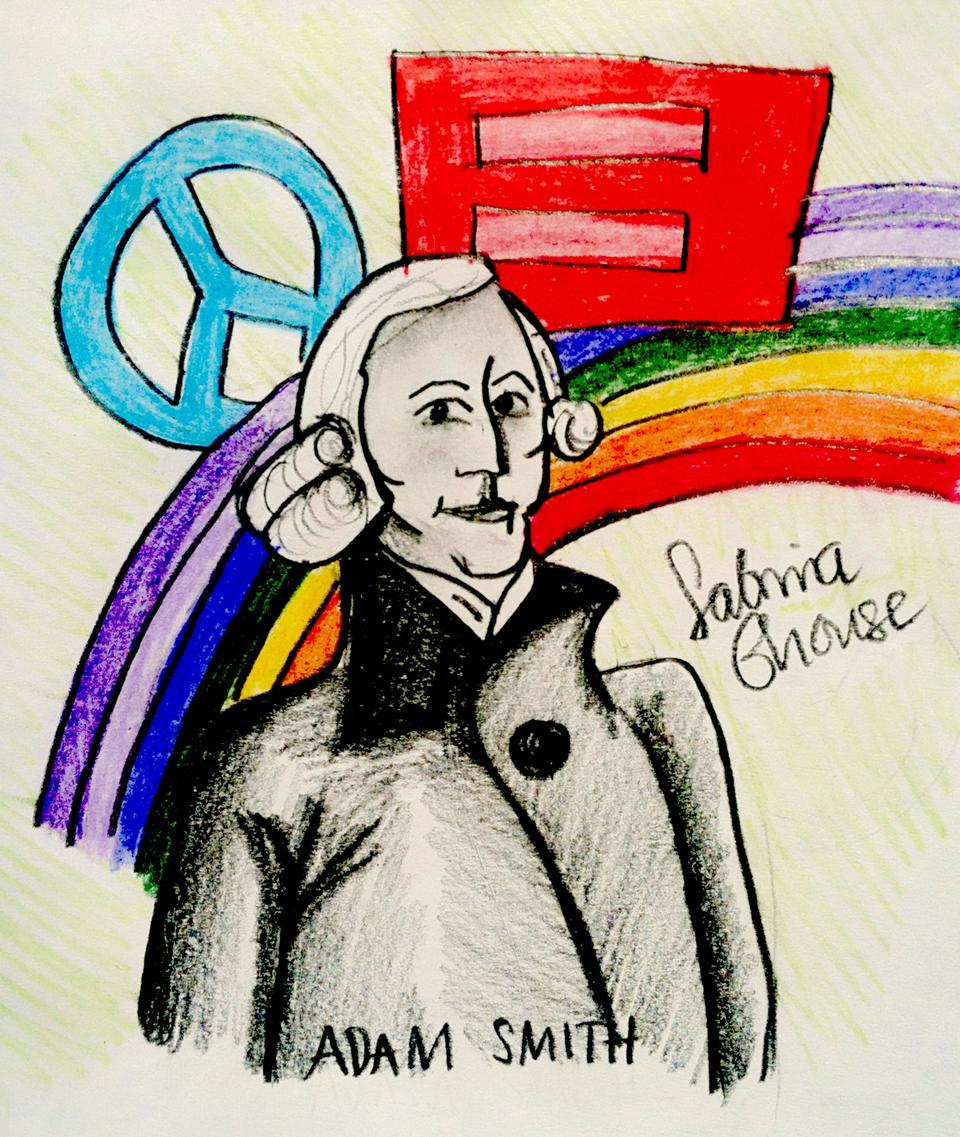
News
When Professors Speak Out, Some Students Stay Quiet. Can Harvard Keep Everyone Talking?

News
Allston Residents, Elected Officials Ask for More Benefits from Harvard’s 10-Year Plan

News
Nobel Laureate Claudia Goldin Warns of Federal Data Misuse at IOP Forum

News
Woman Rescued from Freezing Charles River, Transported to Hospital with Serious Injuries

News
Harvard Researchers Develop New Technology to Map Neural Connections
The Soul of Economics
Economics may have the stern face of a technocrat, but it has a more tender soul

When I present an economic argument in debates with my liberal friends, I often hear the counterargument that “economists only care about efficiency.” On issues ranging from free trade to price gouging, mainstream economics seemingly values efficiency over equality and social justice. The discipline, however, has a long history of promoting peace, tolerance, and benevolence.
Capitalist economics has celebrated peace since its inception in the publication of The Wealth of Nations. While Adam Smith is primarily known for his stance against government intrusion in markets, he was also a strong opponent of government involvement in imperialist conquest. During a period when nearly 70 percent of Great Britain’s non-interest expenditure was spent on a military arms race against other European imperial powers, Smith recognized that the military, “however honorable, however useful, however necessary… produces nothing for which an equal quantity of services can afterwards be procured.” In particular, Smith argued that the benefits of British monopoly in North America are not properly compensated by its cost of subduing the American colonies. The merchants are the overwhelming benefactors of imperial colonies, although British taxpayers ended up paying for military spending. At a time when Great Britain’s commercial oligarchy oppressed the American people with force, Smith laid down an economic case for self-determination.
After Smith, the neoclassical economists introduced a value-free analytical framework to economics. Most economic models, for example, assume that individuals are driven by rational self-interest, without judging the merits of their motivations. The tolerance of diverse human desires in economic models naturally translates to tolerance of human desires in society. As these models treat all individuals as equals, it becomes difficult to treat individuals differently under the law.
In the 19th century, these ideas put economists ahead of their times, firmly in opposition to bigotry and social injustices. Economists who embraced utilitarianism, such as Jeremy Bentham and John Stuart Mill, ardently opposed slavery and subordination of women, as discrimination based on personal traits was incoherent with their utilitarian calculus.
Recently, Professor N. Gregory Mankiw, a conservative economist, signed the Republican amicus brief in support of gay marriage, while two Wharton economists celebrated gay marriage as a mode of “hedonic marriage” that reflects the evolving economic motivation of marriage. The great Harvard economist Amartya K. Sen even offers the idea that pursuit of freedom is not just the means of economic development, but also its end. Economists’ advocacy for freedom extends much further than market freedom into other spheres of civic life.
As the benefits of free market liberalism spread in the past half-century, economists have also played a humanitarian role in many parts of the world. The Peruvian economist Hernando de Soto, for instance, was deeply disturbed by slum dwellers’ lack of property right to the homes they live in. He advocated for a successful appropriation of property, which enriched more than a million impoverished Peruvians living in dire conditions. Works of economists like de Soto shows that economics does not only encourage prosperity through free trade, but it also builds institutions that can sustain economic prosperity. Today, one of the most exciting fields of economics is development economics, which aims to replicate the success of Western institutions in the poorest countries. A discipline that prides itself on utility maximization cannot ignore the low-hanging fruit of alleviating the poverty of millions in the world.
Since mainstream economics is largely a value-free framework with an obsession with optimization, it is easy to dismiss economics as a “soulless” social science. This characterization, however, ignores other values of economics that are just as inherent in economic models. These values make up the soul of economics and have upheld a long and proud tradition of peace, tolerance, and benevolence. It is a tradition that should be preserved and celebrated.
Jonathan Z. Zhou ’14 is an applied mathematics concentrator in Eliot House. His column appears on alternate Wednesdays.
Want to keep up with breaking news? Subscribe to our email newsletter.
